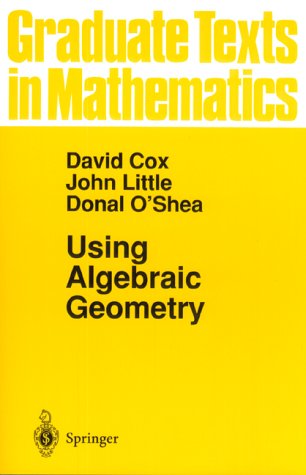

Most ebook files are in PDF format, so you can easily read them using various software such as Foxit Reader or directly on the Google Chrome browser.
Some ebook files are released by publishers in other formats such as .awz, .mobi, .epub, .fb2, etc. You may need to install specific software to read these formats on mobile/PC, such as Calibre.
Please read the tutorial at this link: https://ebookbell.com/faq
We offer FREE conversion to the popular formats you request; however, this may take some time. Therefore, right after payment, please email us, and we will try to provide the service as quickly as possible.
For some exceptional file formats or broken links (if any), please refrain from opening any disputes. Instead, email us first, and we will try to assist within a maximum of 6 hours.
EbookBell Team

4.8
54 reviewsIn recent years, the discovery of new algorithms for dealing with polynomial equations, coupled with their implementation on fast inexpensive computers, has sparked a minor revolution in the study and practice of algebraic geometry. These algorithmic methods have also given rise to some exciting new applications of algebraic geometry. This book illustrates the many uses of algebraic geometry, highlighting some of the more recent applications of Gröbner bases and resultants.
The book is written for nonspecialists and for readers with a diverse range of backgrounds. It assumes knowledge of the material covered in a standard undergraduate course in abstract algebra, and it would help to have some previous exposure to Gröbner bases. The book does not assume the reader is familiar with more advanced concepts such as modules.
For the new edition, the authors have added a unified discussion of how matrices can be used to specify monomial orders; a revised presentation of the Mora normal form algorithm; two sections discussing the Gröbner fan of an ideal and the Gröbner Walk basis conversion algorithm; and a new chapter on the theory of order domains, associated codes, and the Berlekamp-Massey-Sakata decoding algorithm. They have also updated the references, improved some of the proofs, and corrected typographical errors.
David Cox is Professor of Mathematics at Amherst College. John Little is Professor of Mathematics at College of the Holy Cross. Donal O’Shea is the Elizabeth T. Kennan Professor of Mathematics and Dean of Faculty at Mt. Holyoke College. These authors also co-wrote the immensely successful book, Ideals, Varieties, and Algorithms.